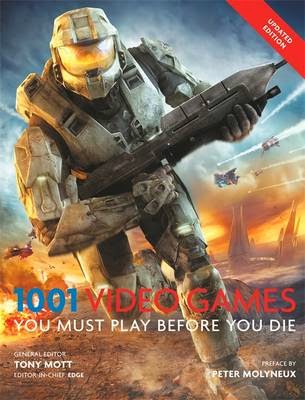Can you point to any specific examples of this? More than just one or two?
Don't get me wrong, I'm not saying such people don't exist, but acting like most games journalists have never played Pac-Man or Super Mario Bros. strikes me as completely incorrect. Most of the guys I know of who work for major sites and are successful at what they do have decades of gaming experience and most definitely know more about games and their histories than most developers, and often have keen design insight too. They're also often great personalities (or at least defined ones) who, whether you like them or not, are able to connect with their audience.
That apparent image of the blockheaded frat boy who palms the controller and rates games down because the graphics aren't cranked to 11 or he can't score enough headshots due to his own lack of skill is one that I don't think exists at all outside of the most amateur of sites and GameFAQs user review sections, or more likely, people's imaginations.
I think games journalism gets a bad rap for two major reasons - one, it's a relatively new industry which for well over a decade as well known for being very heavily sponsored by publishers (if not run by them, i.e. Nintendo Power) and targeted towards a youth-oriented market, and two, because it's basically entertainment journalism, which in general is perceived as "less professional" by journalists and the public overall. The last half-decade or so has been quite interesting because the transition away from that model and towards more focus on in-depth academic analysis and insightful design commentary has really taken off.
And what do you know? Sites like Polygon that have been trying to steer games journalism towards more investigative are struggling to gain enough viewers to support themselves without the "popcorn" pieces, and have had to adjust their coverage accordingly, just like I'm sure the fashion and entertainment sections of your local news are the most popular. Trying to mix insight and analysis into a field where audiences go primarily for entertainment value is difficult, and audiences in broad terms are of course always going to go for the fluff and sensationalism first - that's nothing new. It's not that there's no demand, it's that games journalism is in a state of transition and finding the right ways to present and organize itself both on a business level and to audiences.
Give it another decade or two for both audiences and the industry to mature and I think this will be far less of an issue.
Pac-Man and Super Mario Bros. are some low expectations for a professional, eh sea? That's the movie equivalent of Star Wars and Snow White... these are games that became pop icons, that geeks use in t-shirts and have billions of versions and re-releases. We're talking about professionals here; he has to go beyond the obvious, beyond the common place.
Let me show you a personal hate channeling focus:
This book has over 30 contributors; Edge editors, the founders of RPS, people that published books on gaming history, writers of PC Gamer, Eurogamer, Wired, IGN, etc... these are the guys that no doubt are to be considered professionals.
These people compiled a book with 1001 games to play. It does not feature ANY King's Quest, Space Quest, Leisure Suit Larry, Quest for Glory, Tex Murphy, Gold Box or Wizardry title. It doesn't have any of Troika's or Piranha Bytes games, not even Bloodlines. You won't see here stuff like Pitfall, Wasteland, I Have no Mouth and Must Scream or even fucking Ultima IV! The only Might & Magic in this entire book is Clash of Heroes.
Do you get that? The "professionals" our beloved industry employs see no value in those titles. No, what they know and understand is incluiding 5 Halo, 5 Mario Kart, 4 Guitar Hero and even fucking 2 entries for Bejeweled, just to show us how they were really padding it up.
I'll say it again, these people don't study their trade. They've "been gaming since before PCs were called PCs", and that's it. They went through the motions of what was popular at the time in their circles, playing Mario Bros. 3, DOOM, Chrono Trigger, etc... and never looked back, as if growing up as a gamer in the 80s and 90s somehow turns you into an authority in the subject. Back to the movie comparison, is as if a film critic credentials were "I've watched The Lion King in a cinema as 12-old kid, and have been going to the movies ever since!"
Now, I agree with you that there are exceptions. You mentioned Polygon, and indeed they have some great stuff, like the fasntastic
The Oral History of Street Fighter II. I bow my head to that. But those are some damn rare exceptions... as you said, maybe in a decade or so...











![Have Many Potato [2013] Codex 2013](/forums/smiles/campaign_tags/campaign_potato2013.png)
![The Year of Incline [2014] Codex 2014](/forums/smiles/campaign_tags/campaign_incline2014.png)

















